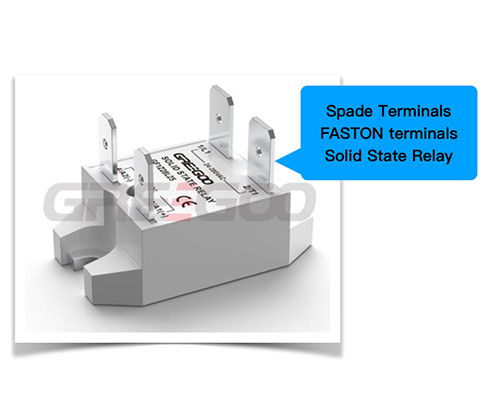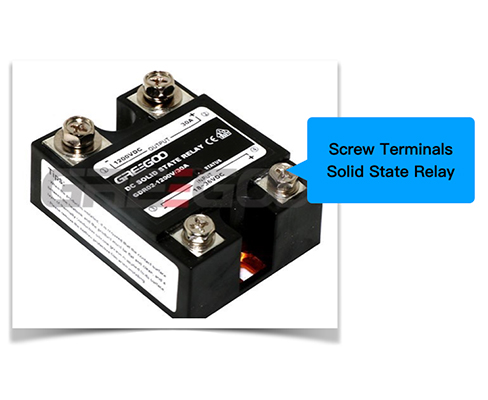Advantages and Disadvantages of Spade Terminals and Screw Terminals in Solid State Relays
Spade Terminals Solid State Relays
Advantages:
- Easy Installation: Spade terminals can be quickly connected and disconnected, suitable for situations requiring frequent replacement or maintenance.
- High Reliability: When properly installed, the connection is very secure and not easily loosened.
- Wide Applicability: Suitable for connecting various types of wires and equipment.
Disadvantages:
- Requires Tools: Installation and removal usually require the use of tools such as screwdrivers.
- Limited Contact Area: Compared to screw terminals, the contact area is smaller, which may affect current transmission efficiency.
- Vibration Sensitivity: In high-vibration environments, the connection may become loose.
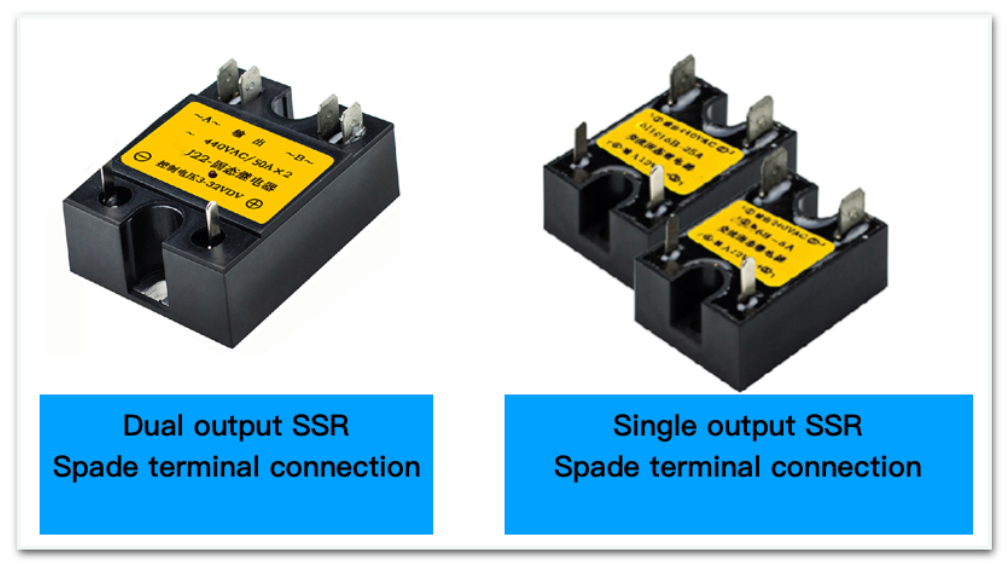
Screw Terminals Solid State Relays
Advantages:
- Large Contact Area: Screw terminals provide a larger contact area, ensuring better current transmission.
- Firm and Reliable: Screw connections are very secure and not easily loosened, suitable for long-term use.
- Wide Applicability: Suitable for connecting various types of wires and equipment, especially thicker wires.
Disadvantages:
- Complex Installation: Requires the use of tools such as screwdrivers for installation and removal, making the process relatively complex.
- Time-Consuming: The installation and removal process takes longer than spade terminals.
- Inconvenient Maintenance: In situations requiring frequent replacement or maintenance, using screw terminals may be less convenient.
Summary
The choice between spade terminals and screw terminals mainly depends on the specific application scenario and requirements. If quick connections and frequent maintenance are needed, spade terminals may be more suitable; for situations requiring long-term stable connections, screw terminals are a better choice.
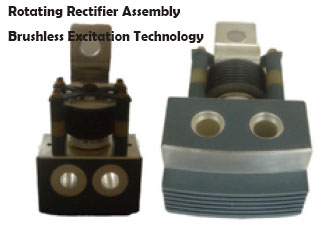
Excitation technology rectifier components for 30-1350MW steam turbine generators
No maintenance of slip rings and carbon brushes, high reliability; There is no pollution of the motor coil caused by carbon powder and copper powder, and the insulation life is long; No friction sparks, suitable for operation in harsh environments.
Read More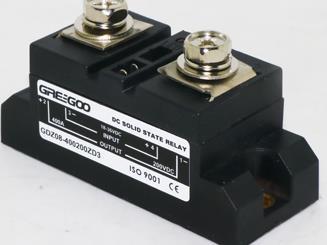
What is a DC Solid State Relay? How about it's feature, application and how to choose a suitable DC SSR?
DC solid state relays use semiconductor switching elements, which makes them faster, more reliable, and longer-lasting in many applications.
Read More
How to use DC Current Shunt? A Comprehensive Guide on DC Shunt Resistor
Understanding DC Current Shunts, A Comprehensive Guide.
Read More
Differences Between TRIAC Output SSR (GD series SSR) and SCR Output SSR (GDH series SSR)
GD and GDH series single phase solid state relay, what's their difference?
Read More











